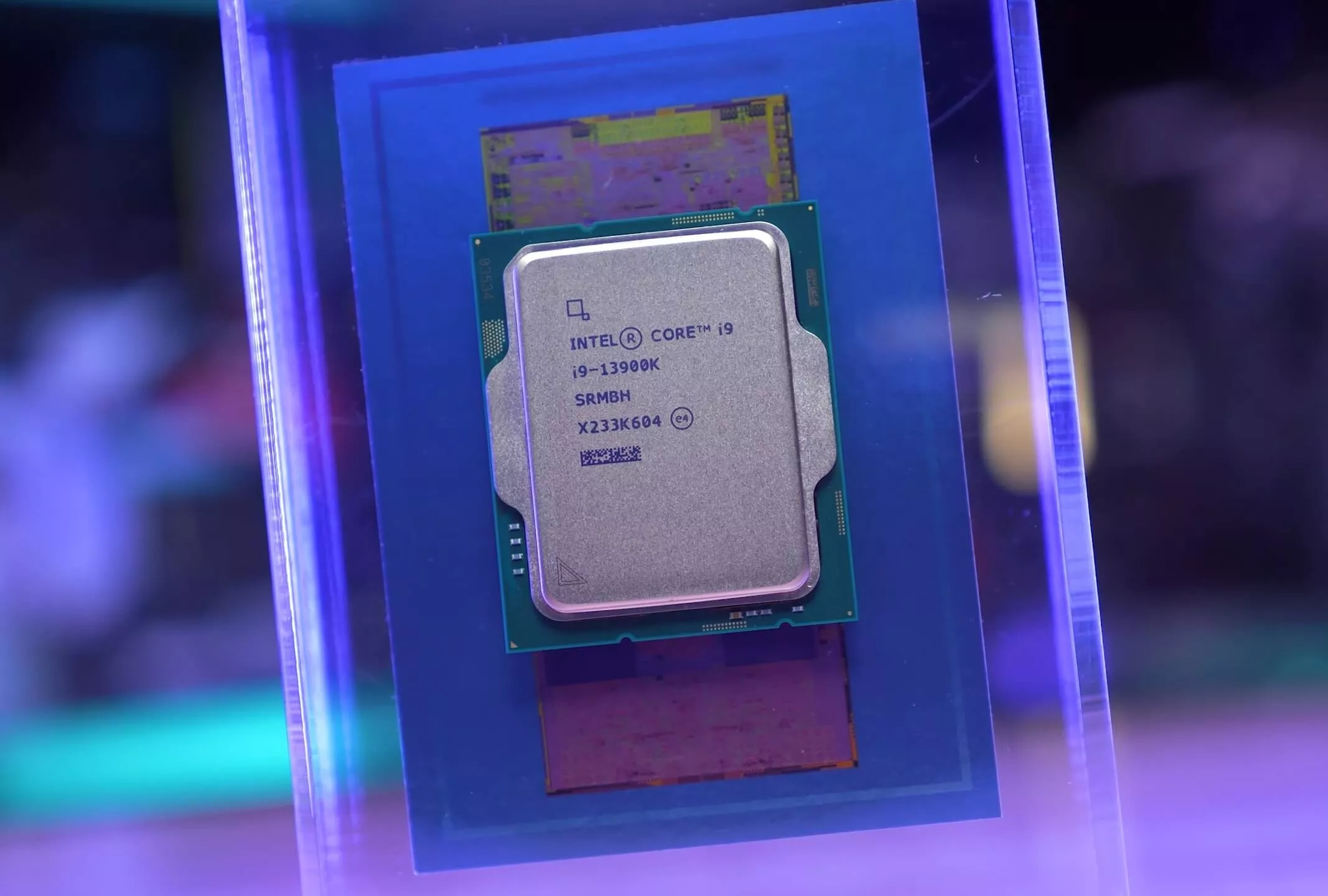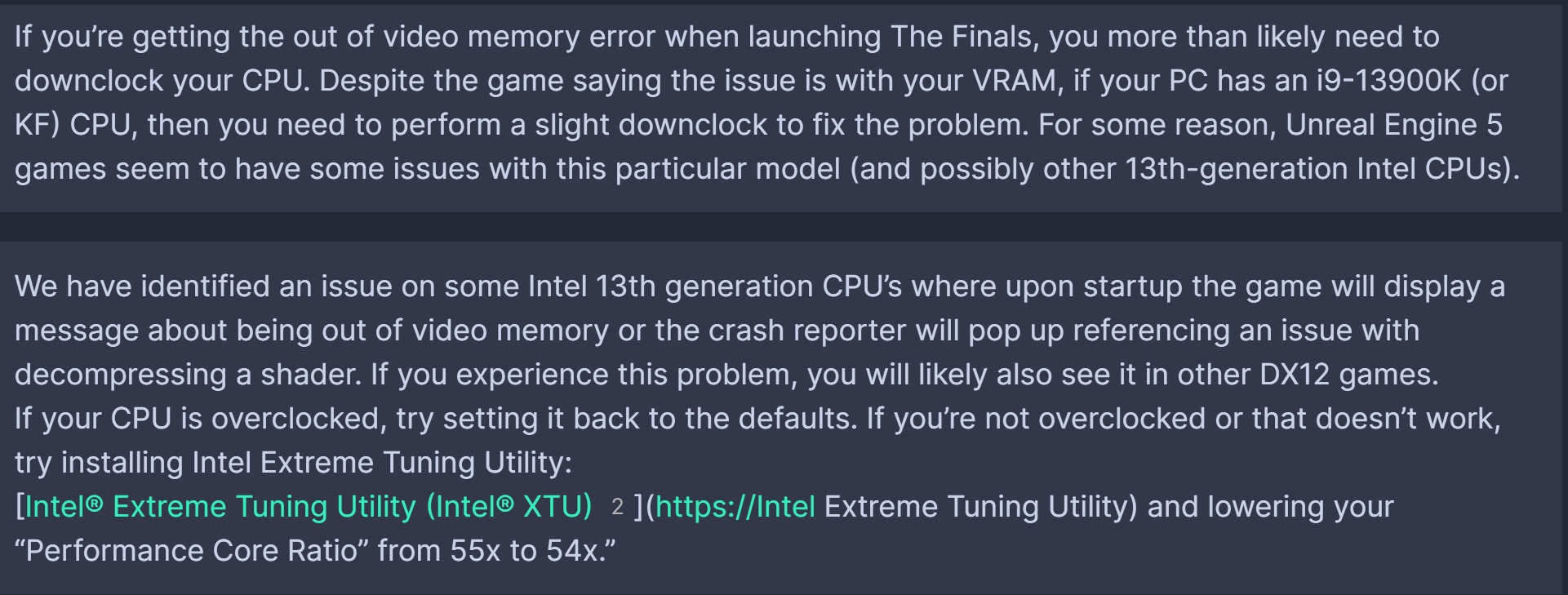In brief: Remember back in February when we saw more reports of Intel's top-end 13th-gen and 14th-gen CPUs causing game instability, especially in titles powered by the Unreal Engine? It's led to many people returning their processes, and Team Blue now says it is finally investigating the problem.

There were several reports at the start of the year about Core i9-13900K and Core i7-14900K users experiencing crashes in games. While many reported seeing an "out of video memory" error, some noted that games would close for no apparent reason, leaving them on the desktop. Other reports complained that the systems froze entirely and required a restart.
With most of the problems seemingly affecting Unreal titles like Fortnite, Epic Games advised users to adjust their BIOS settings, changing the SVID Behavior setting to Intel Fail Safe on Asus, Gigabyte, or MSI boards.
Epic-owned RAD, the company behind the Bink video codec and Oodle data compression technology, said "overly optimistic BIOS settings" are causing a small percentage of processors to go out of their functional range of clock rate and power draw under high load, and execute instructions incorrectly.
Fatshark, developer of Vermintide 2 and Warhammer 40,000: Darktide, advised those experiencing problems to underclock the Performance Core speed using Intel Extreme Tuning Utility (XTU), from x55 to x53. Gearbox's advice was to remove any overclocks or use XTU, though changes made in the BIOS persist after a reset, unlike those made with Intel's software. More recently, the developer of Outpost: Infinity Siege suggested that players using Intel i9-13900K or 14900K CPUs should downclock them from 5.5GHz to around 5GHz to avoid crashes.
Nvidia's response to the problem
Remnant 2, Hogwarts Legacy, The Finals, Overwatch 2, and Nightingale have also been experiencing issues. ZDNet Korea writes that Tekken 8 has been showing an error message stating the PC doesn't have enough memory, even on systems with huge amounts of VRAM and system RAM. It's reported that around 10 people in South Korea are returning their 13th-gen or 14th-gen CPUs or prebuilt PCs that use the chips every day, exchanging them for equivalent AMD Ryzen processors. The news could be what prompted Intel to finally confirm it is investigating the issues.
Intel told the publication that it's "aware of problems that occur when executing certain tasks on 13th and 14th generation core processors for desktop PCs, and is analyzing them with major affiliates."
It might not be an ideal solution, but until Intel comes up with something better, it appears that the only way to deal with the game instability is downclocking, lowering the power/current limits, and undervolting 13th/14th-gen CPUs.
Intel is finally investigating reports of high-end 13th/14th-gen CPUs causing game crashes
